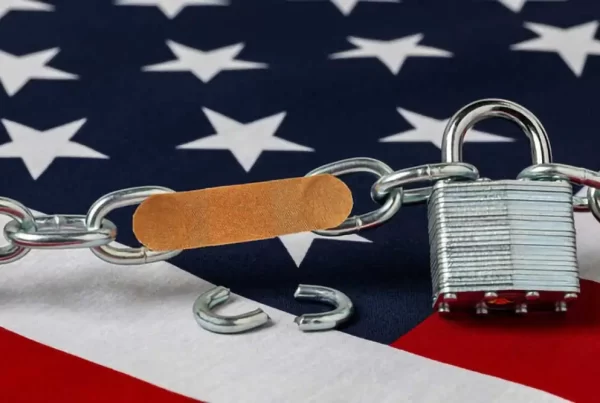According to the market research group IBISWorld, over the past five years, the U.S. IT Consulting industry has grown by 2.7% to reach revenue of $426bn in 2018. In the same timeframe, the number of businesses has grown by 1.6% and the number of employees has grown by 3.2% There are nearly 433,000 information technology consulting businesses in the United States, employing more than 2 million people.
The Trump administration should be applauding and supporting this U.S. economic growth. Instead, under Trump, USCIS has been systematically attacking the U.S. IT industry through policy memos.
Some might call it death by a thousand cuts. At every turn, this administration has been frustrating business in the U.S. by creating an increasing number of obstacles for U.S. employers to find the best IT professionals and grow their businesses. These obstacles are created not through the legislative process, but by policy memos written to complicate a company’s ability to hire foreign nationals. The effect of these memos is real monetary loss for U.S. companies.
A prime example is the February 22, 2018 policy memo entitled “Contracts and Itinerary Requirements for H-1B Petitions involving Third Party Worksites.” This memo states that employers must provide contracts and itineraries for employees who will work at a third-party location. USCIS issued a press release the same day aligning this memo with Trump’s Buy America and Hire America Executive Order stating that this policy is meant to “protect the interest of U.S. workers.”
An immediate result of this memo has been shortened H-1B approval dates. USCIS is looking now at the statement of work provided by the employer to determine the expiration date for H-1B status. And there lies the rub …The IT Consulting industry is fluid. Companies typically issue SOW’s for short term placements. Even where there is language for renewal in the contract, USCIS will typically grant H-1B employment only for the time period indicated on the SOW. Many of these placements are for less than a year. These contracts are constantly evolving and being re-negotiated. Thus, employers are forced to file numerous extensions every time a contract is extended.
To add to employer headaches, USCIS now requires employers to file amended H-1B petitions when an H-1B worker moves to a new job location that requires a new Labor Condition Application. IT consultants are routinely being moved to new work locations as the need arises. Work is not predictable. This is the 21st century. IT professionals are rarely tied to one desk. Thus, many employers are forced to file numerous extensions and amendments, costing them money, time, and potential business. Not to mention the risk. The risk pertains to the Oct. 23, 2017 Memo titled “Rescission of Guidance Regarding Deference to Prior Determinations of Eligibility in the Adjudication of Petitions for Extension of Nonimmigrant Status.” This Trump memo reversed a long-held policy of USCIS deference to former approvals when adjudicating extensions and amendments. Now, under Trump, USCIS must re-adjudicate every H-1B extension and amendment as if it were a completely new case. This creates additional risk for employers every time they extend or amend an employee’s visa status.
Fortunately, more employers are willing to sue USCIS in federal court to challenge these anti-business policy memos. The most promising case is one filed by ITServe Alliance which challenges USCIS, claiming the Third-Party Memo violates the American Procedures Act and INA. Earlier this month we witnessed over 50 U.S. universities and colleges win a nation-wide injunction against Trump’s policy memo against international students. It’s time for the U.S. IT Industry to follow suit. “Buy America Hire America” is an empty line this administration has been hiding behind when issuing USCIS policy memos that continue to frustrate and drive away business in the U.S.





